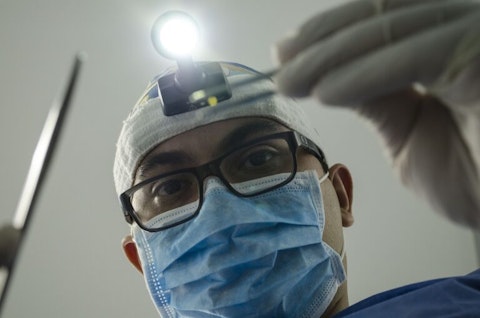Listing the top 15 African countries with the best doctors is both challenging and fascinating, given the continent’s significant investment in economic growth in recent decades. Medical care remains a major challenge in Africa, with a mix of progress and limitations. On one hand, there has been substantial investment in infrastructure and an influx of expats, leading to improved care. On the other hand, Africa still grapples with various demands, including poor infrastructure, lack of education, and economic struggles in some regions.
Nonetheless, we can observe significant efforts by certain African countries to invest in doctors and hospitals, particularly in more developed areas favored by expats. In the past, expats primarily relied on private medical care, but there has been a shift towards bolstering the public health system. However, this support varies across regions, with the most advanced countries attracting the highest number of foreign medical professionals, while the poorest ones still face significant challenges in healthcare.

15 African Countries with the Best Doctors
It is evident that investing in healthcare and the medical system is one of Africa’s critical priorities in the years to come. For instance, Nigeria has spent around $11.01 billion on medical tourism in the past decade. Countries like Nigeria (74,543 doctors), Algeria (72,604), and South Africa (46,393) have a substantial number of doctors. However, the doctor-to-patient ratio in most African countries remains low, despite the continent’s rapid growth. To address this, educating and employing new doctors will be a crucial challenge.
To determine the African countries with the best doctors, we used a comprehensive methodology. Firstly, we examined the growing trend of medical tourism in Africa, focusing on 12 countries already providing premium care to international patients. We ranked these countries higher, assuming they have top-quality doctors. Additionally, we considered six other countries preparing for similar programs, as a sign of their investment in medical education. We researched health care indices and expenditure indices for these countries using data from NUMBEO. Moreover, we analyzed the number of doctors per capita in each country to assess their commitment to doctor education, support, and practical experience. Lastly, we considered the percentage of GDP allocated to healthcare, as it indicates better overall resources in terms of education, healthcare facilities, technology, and more. After conducting a comprehensive review of top medical practitioners in Africa we prioritize placing the countries of origin at the top of our list. Based on these criteria, we compiled a list of the 15 African countries we believe have the best doctors, characterized by their quality of education, practice, and knowledge.
15. Angola
Despite significant investments in medical care over the past decade, Angola still confronts numerous challenges. Among the most pressing issues are the high numbers of HIV/AIDS patients and neonatal disorders. However, the country boasts professional healthcare professionals working in both public and private sectors, 24-hour pharmacy stores, and modernized hospitals and ambulances. Sadly, Angola faces a shortage of doctors, with only 0.17 doctors per 1,000 people, which is considerably low for the country’s needs.
14. Botswana
Botswana stands out as a country that has made significant investments in healthcare in recent years, allocating 6.19% of its GDP to this crucial system. The country’s decentralized medical system, consisting of 27 health districts, aims to address the growing issue of doctor shortages. Doctors working in Botswana specialize in areas like tuberculosis, HIV/AIDS, and the care of patients with mosquito-borne illnesses. To further bolster the healthcare workforce, Botswana has introduced a free school health program, which is expected to increase the number of doctors in the country.

15 African Countries with the Best Doctors
13. Eswatini
Eswatini (Swaziland) provides almost entirely free healthcare to its citizens, but it grapples with numerous challenges. Shockingly, 26% of the adult population is HIV positive, contributing to the country having the 12th lowest life expectancy globally. The scarcity of doctors is another pressing issue, with more than 40% of the population resorting to private healthcare services due to the lack of medical professionals. The centralized administration has been effective in organizing policies, regulations, and laws, but the government acknowledges the need for further investment to enhance medical care in the country’s future.
12. Tanzania
Tanzania’s healthcare system faces significant challenges, with notable issues in maternal and child mortality rates, as well as a high prevalence of HIV/AIDS patients. Despite these challenges, the government plays a crucial role in running 60% of the healthcare facilities, demonstrating a substantial investment in medical care. As part of its priorities for the future, Tanzania plans to further invest in healthcare, with a planned allocation of 3.75% of its GDP. This investment is aimed at improving medical services and expanding access to foreign citizens, emphasizing the need to focus on doctors’ education to meet the growing demand for quality healthcare in the country.
11. Ghana
Ghana’s healthcare system covers nearly 70% of its population with healthcare insurance, showing a significant effort to provide access to medical services for a large portion of its citizens. To ensure quality medical care, the country recognizes the importance of investing in education and enhancing doctors’ knowledge. As a growing nation, Ghana faces the challenge of keeping up with modern technology and medical advancements. However, it also presents numerous opportunities to rapidly improve its healthcare system. Considering these factors, Ghana has earned its place on this list of countries with potential for enhancing medical care.

Pixabay/Public domain
10. Ivory Coast
Ivory Coast has made significant investments in its medical care system in recent years, with a notable increase in medical tourism. The country allocates substantial funds to enhance doctors’ knowledge and education, making it an attractive destination for expatriates seeking medical services. Despite having less than one doctor per citizen, Ivory Coast has managed to maintain a stable and open healthcare system, catering to both its residents and foreign visitors. This commitment to improvement suggests that the country offers quality healthcare services with skilled and capable doctors.
9. Rwanda
Rwanda is currently embarking on the second phase of creating a premium healthcare system, with a focus on investing in doctors’ education. With an impressive investment of more than 7% of its GDP in the healthcare sector, Rwandan doctors have access to a wide range of resources to enhance their learning and practical experience. However, despite these efforts, the country continues to face challenges in managing the growing number of HIV patients and other health-related issues. Nonetheless, Rwanda’s commitment to improving its healthcare system indicates a positive outlook for the quality of medical care provided by its doctors.
8. Mauritius
Mauritius stands out not only for its great doctors but also for its innovative virtual doctor service. This unique offering allows individuals to connect with experienced doctors in various languages, seeking advice and guidance regarding their symptoms. Moreover, the country provides a second opinion service, ensuring that patients can obtain additional perspectives on their diagnosis if needed. These advancements in the medical system demonstrate Mauritius’ commitment to providing excellent healthcare and further emphasize the quality of its doctors.
7. Egypt
In recent years, Egypt has witnessed remarkable improvements in its healthcare system, particularly in the field of education. With a healthcare investment of over 4% of its GDP, the country has been steadily increasing the number of medical students. The turning point came in 2014 when the government recognized healthcare as a fundamental human right, sparking significant changes. As a result, Egypt has become an attractive destination for expatriates, leading to further advancements in its medical care. These efforts indicate a strong commitment to enhancing healthcare services and the overall well-being of its citizens and visitors alike.
6. Nigeria
Nigeria stands out as one of the African countries with the best doctors, and there are several reasons to support this claim. Firstly, Nigeria has made significant investments in medical tourism, attracting visitors seeking advanced healthcare services. Moreover, efforts have been made to improve the medical infrastructure, ensuring better facilities for patients and medical practitioners. Additionally, measures have been taken to retain skilled medical workers within the country, preventing emigration and strengthening the local workforce. As a result of these initiatives, Nigeria has emerged as a prominent destination for expatriates and tourists in need of exceptional medical care and support. The country’s commitment to enhancing its healthcare services has garnered recognition on an international level, solidifying its reputation as a hub for medical excellence in Africa.

Pixabay/Public domain
5. Morocco
Morocco’s commitment to its healthcare system is indeed commendable, with a significant percentage of its GDP, over 5%, allocated for healthcare investment. The country’s focus on education is equally remarkable, evident in the establishment of five university hospital centers and numerous public hospitals. With nearly one doctor per 1,000 citizens, Morocco has a strong healthcare workforce to cater to the needs of its population. The presence of 12,034 physicians in the public sector reflects the government’s efforts to ensure sufficient medical personnel to provide quality healthcare services. Additionally, Morocco’s dedication to its military personnel is evident through the establishment of a separate military healthcare system, highlighting the country’s comprehensive approach to healthcare provision. With impressive investments amounting to $2.4 billion in the medical sector, Morocco continues to strengthen its healthcare infrastructure, enhancing access to medical facilities and services for its citizens. Such initiatives demonstrate the nation’s commitment to the well-being of its people and position Morocco as a country with a robust and comprehensive healthcare system.
4. Kenya
Kenya’s primary healthcare system is quite intriguing as it’s not centralized in connection with KEMSA, the government pharmaceutical chain. They have invested in smaller centers that cater to patients with flu or cold, in addition to having larger hospitals and clinics. While some ex-pats have described Kenya’s healthcare system as poorly equipped and understaffed, one aspect that receives unanimous praise is the doctors’ knowledge and education.
3. Algeria
Algeria has taken notice of the increasing demands in healthcare and is providing significant support to its doctors and medical staff. Official information reveals that they allocate 6.2% of their GDP to healthcare and have an impressive 1.7 doctors per capita. With a focus on addressing the rise of chronic and cardiovascular diseases, diabetes, and allergies, their aim is to reduce the number of affected patients. Algeria boasts an excellent healthcare index of 52.9 and is among the countries welcoming medical tourists.